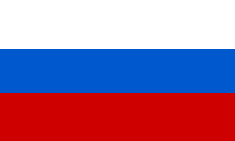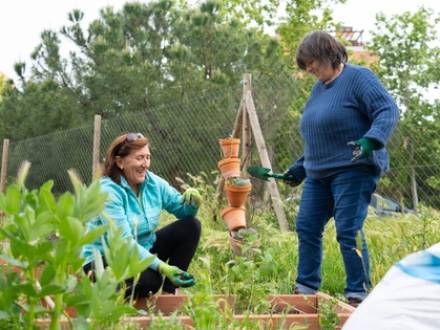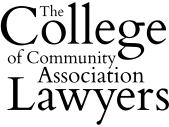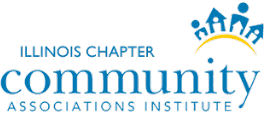 Polish,
Polish,  Ukrainian,
Ukrainian,  Russian,
Russian,  Hindi,
Hindi,  Spanish,
Spanish,  French and
French and  Greek.
Greek.
Community Gardens, Chickens, and Bees in HOA Communities
 Across the United States, including Illinois, neighborhoods are changing, with more residents interested in sustainable living. This could translate into keeping a few backyard chickens, a beehive, or planting a community garden. But what happens when trends like this come face-to-face with Homeowner Association (HOA) rules?
Across the United States, including Illinois, neighborhoods are changing, with more residents interested in sustainable living. This could translate into keeping a few backyard chickens, a beehive, or planting a community garden. But what happens when trends like this come face-to-face with Homeowner Association (HOA) rules?
Conflict can result when HOA residents want to push the boundaries of the rules, yet there should always be a balance between legal obligations, community standards, and individual freedoms. Should HOAs work to accommodate these sustainable living trends, or is this a slippery slope that could result in residents taking even more liberties? Homeowner Associations can benefit significantly from discussing issues like this with an Arlington Heights, IL HOA attorney.
What Is Pushing the Rise in Sustainable Living in Illinois?
Major state investments in green technology and infrastructure, along with evolving consumer practices, are driving the push for sustainable living across the state. These factors create an environment where eco-friendly choices are not only encouraged but they are also affordable and accessible.
There has also been a rise in healthy eating, which often includes raising backyard chickens for eggs and growing at least a part of the family's food. Aside from giving families a sense of self-sufficiency, there can be side benefits of saving money on food and neighborhood engagement when there are community gardens.
Illinois HOA Authority
HOAs in Illinois are broadly governed by declarations, bylaws, and covenants, along with the Illinois Common Interest Community Association Act, effective May 27, 2022, Chapter 765, Act 160, Sections 1-90. Additionally, the Illinois Not-for-profit Corporation Act may apply to HOAs that are organized as non-profit corporations, and local ordinances and regulations can limit or define HOA authority.
Illinois law requires condominium association boards to act with the care required of a fiduciary (in the best interests of the unit owners). Board authority includes enforcing community aesthetics, property values, and safety. While HOAs have considerable flexibility across the state, residents can push back when restrictions seem too restrictive or outdated.
Benefit vs. Risk of Allowing Community Gardens, Backyard Chickens, and Bees
The benefits of a community garden include stronger community bonds and a shared food experience. The risks include possible pesticide use, access to water, and potential disagreements over upkeep and harvesting. The HOA can establish rules regarding the size of the plot, maintenance, and seasonal use, or may choose to set up HOA-managed gardens, rather than leaving it up to individual owners.
Some Illinois municipalities do allow backyard chickens, but only hens, with roosters prohibited. The concerns include noise (not every resident is going to be a backyard chicken enthusiast), the smell, the attraction of flies and predators, and the overall aesthetics of chicken coops. Many HOAs ban chickens entirely, while others will allow a specific number of hens and dictate required enclosures.
For neighbors of would-be beekeepers in HOAs, the risks include bee stings and allergies to bee stings. It is impossible to keep bees within one individual’s yard, so this can be a more prohibitive issue than gardens or chickens. HOAs may require permits, regulate hive placement, or prohibit bee hives.
Contact a Cook County, IL Homeowner’s Association Lawyer
HOAs can often create clear, yet reasonable policies regarding chickens, gardens, and bees, rather than instituting outright bans. Residents may be encouraged to propose their own community rules for these things, working to maintain a balance between community property values and individual lifestyle choices.
If your HOA Association is struggling to address these issues or other similar ones, consulting with an Arlington Heights, IL HOA attorney from Dickler, Kahn, Slowikowski & Zavell, Ltd. can provide guidance for creating HOA policies that work for everyone involved. We have more than 150 years of combined legal experience. This level of experience benefits our clients, ensuring they receive the best legal advice and the most effective solutions to their issues. Call 847-593-5595 to schedule your initial attorney meeting.















